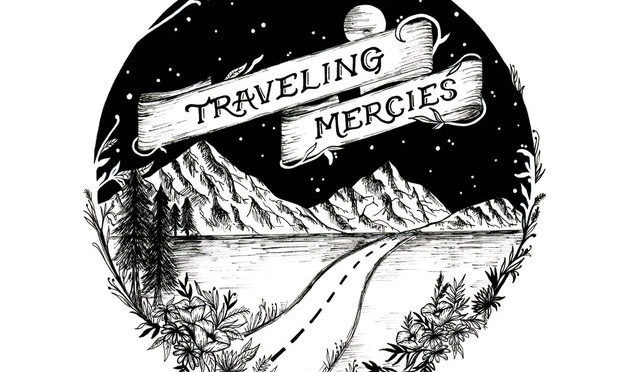Rating: 8/10
If you are looking for a new traditionally minded artist who still sounds fresh in 2019, look no further than Emily Scott Robinson. If you are seeking the raw emotion and honest songwriting unique to country music and to true artistry, you’ll find it in Emily Scott Robinson. To women specifically, if you are searching for empowerment and inspiration, for stories that resonate, for songs that heal and comfort, search no further than Emily Scott Robinson. Turn away from the generic, empty messages offered by so many mainstream artists, and find hope and strength in the songs of Emily Scott Robinson.
This album’s greatest strength is Robinson’s intangible ability to relate, to reach inside her soul and share a part of herself with all of us in the hopes that we may find comfort and common ground. “The dress” has been the most publicized example of this, a heartbreaking account of Emily’s struggle to move on after being raped. The simple questions in the chorus like, “Was it the dress I wore? Was it the wine he poured?” reflect all too well the questions which victims often ask themselves as they fight to come to terms with the terrible reality.
But “The dress” is only one instance of many on this record where Emily Scott Robinson manages to capture heartbreak and despair so poetically. “Run” feels like the fictional companion to the autobiography of “The Dress,” with a narrator that endured eleven years in an abusive marriage before finally fleeing in the dead of night, fearing for her life. “Ghost in every Town” rings with the kind of honesty that is almost painful to listen to, as Robinson paints a bleak picture of the forgotten people in every town and the hopeless lives they wander through each day. The characters in “Delta Line” each endure their own personal struggle as well, highlighting that every one of us is going through some private hell of our own, each one unique but no one less difficult than another. “Pie Song” seems to be lighthearted and fun at first, with simple lyrics about baking a birthday pie for a lover, but it’s deeper than that; the pie is only an illustration, meant to explain that even the most thoughtful of gestures don’t matter in a loveless relationship. You cannot earn the affection of another, and we all deserve someone who loves us back and gives as much as we give to them.
The bleak, somber nature of the album is also present in the production. Many of these tracks highlight only Emily’s vocals and acoustic guitar, keeping the arrangements sparse and showcasing the lyrics. There’s some fiddle sprinkled into “Delta Line” to add some color, and some lovely steel guitar accentuating “Pie Song.” Emily Scott Robinson’s voice is soft and soothing, and the production, through most of this, is tasteful and appropriate, not drowning her out or getting in the way.
And like all good dark albums, there’s hope and joy mixed in here as well, bright spots to provide levity and keep things from running together. “Better With Time” may be one of the best selections here, beautiful in its simplicity and sincerity. This is also autobiographical to Emily, but this is a story of love and friendship, the things that make this whole difficult life worth living. “Overalls,” though it’s told from the perspective of a man on his deathbed, is one of the most joyful songs of the bunch, as he advises his family not to dress in black and to remember him with fond smiles rather than tears. And where “Borrowed Rooms and Old wood Floors” tells the darker side of life on the road, not knowing where home really is anymore and sleeping in old friends’ houses, with nothing to talk about these days except memories long past, “White Hot Country Mess” provides the lighthearted side to it all and pokes fun at the “Americana dream” of living on caffeine and dry shampoo. Through it all, there’s balance; life can be cruel and unforgiving, but it can also bring us the simplest joys and comforts.
This album is an excellent showcase of human emotion, highlighting the pain and hardship we all experience while still somehow managing to carry hope and peace. It’s comforting and cathartic, and the lighter production, as well as Robinson’s gentle delivery, adds to the mood of the record. These stories are honest, sometimes to the point of brutality, but there is a power in songs like these to heal which is far greater than that of happy, feel-good anthems that carry a shallow message and ignore the world’s pain. This is the kind of comfort that only comes from empathy and understanding. IN short, it is the heart and soul of country music.
Beautiful, powerful, incredible album. Emily Scott Robinson is a name you need to know.

